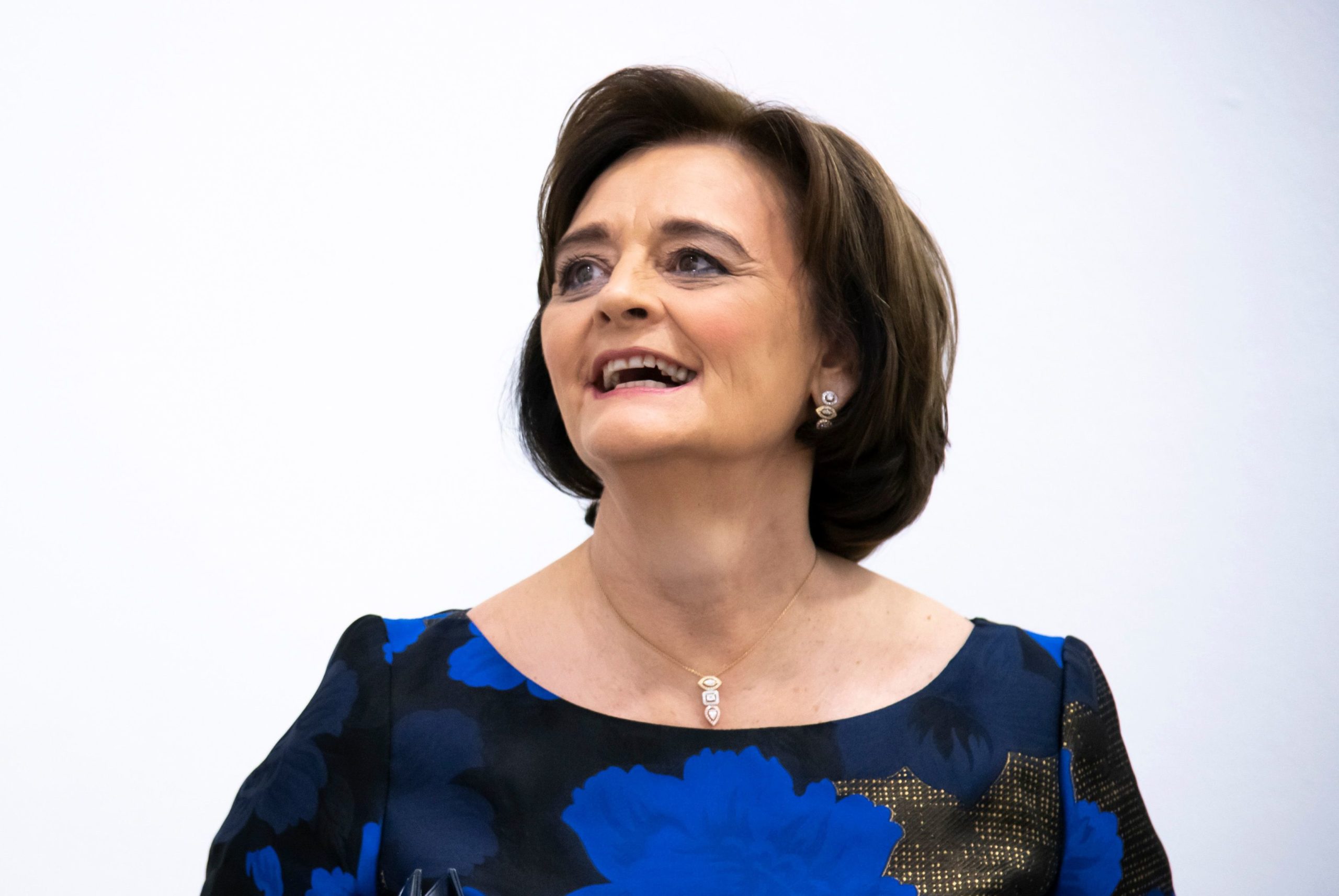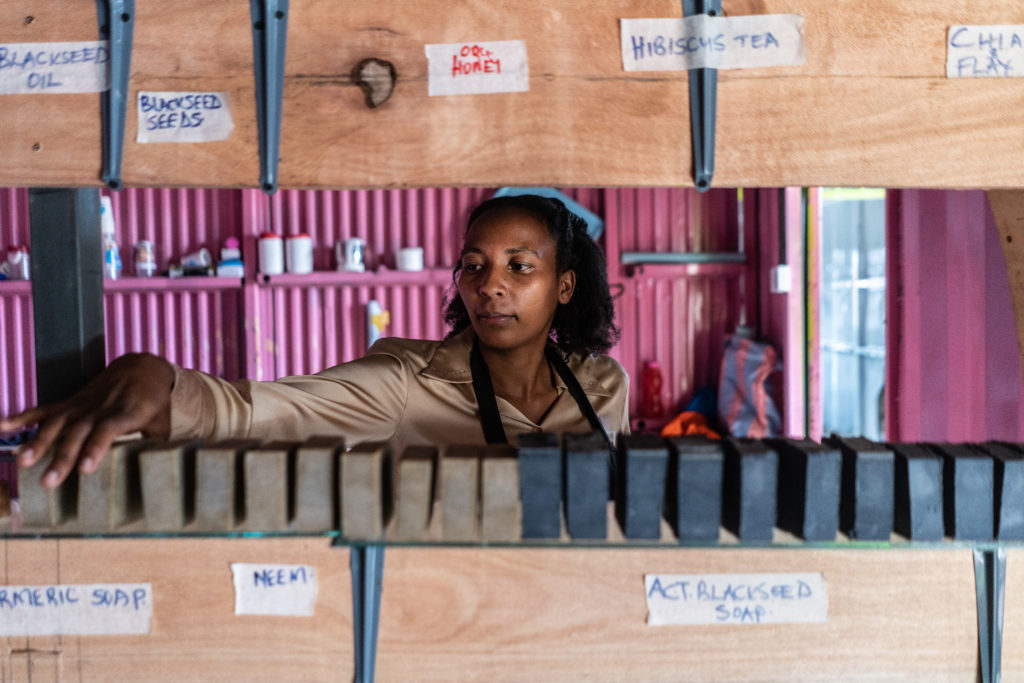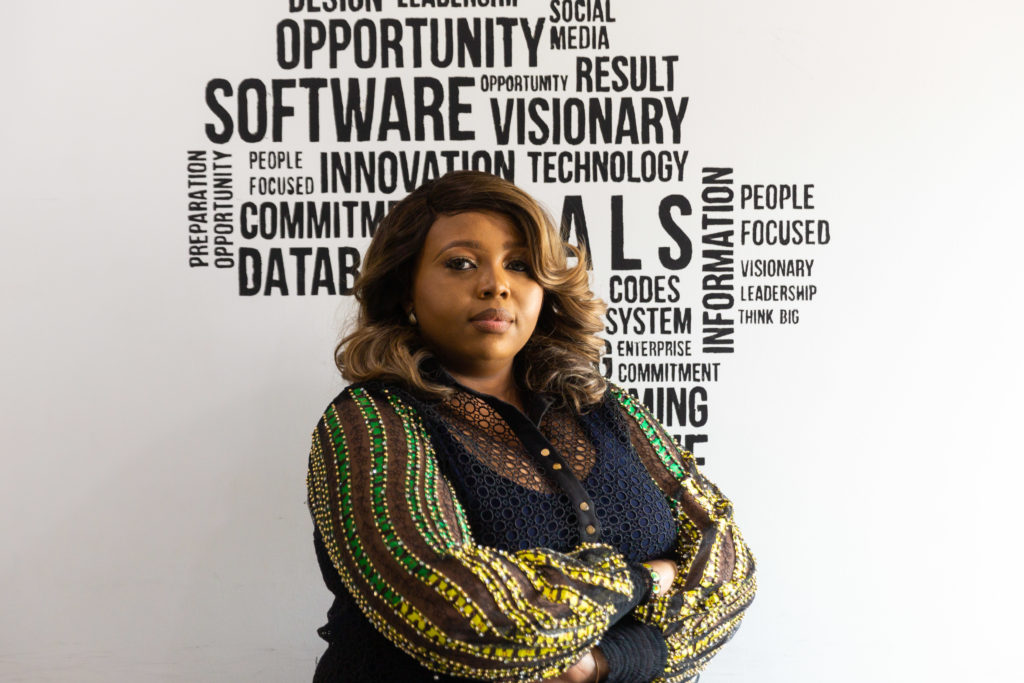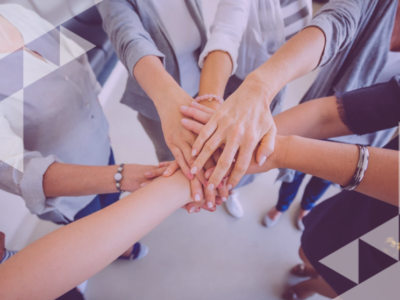Cherie Blair may be best known for her role as the wife of former British Prime Minister Tony Blair from 1997-2007. But her work as a leading lawyer, entrepreneur and committed campaigner for women’s rights has been ongoing.
In addition to championing human rights in her professional legal career and participating in several charities focused on women and children, she set up the Cherie Blair Foundation for Women in 2008 to help women build and grow businesses in low- and middle-income countries.
Since its founding, the Foundation’s programs supporting women entrepreneurs have transformed lives, businesses and communities — going beyond access to financial and human capital to address other leadership, social and cultural constraints.
An early entrepreneur
In an event organized and led by Sacha Zackariya, CEO of ChangeGroup, Blair shared her journey and the work of the Foundation.
“I consider myself an entrepreneur,” says Blair. “For a long time, I was a self-employed barrister and advocate and set up different legal businesses. Even during my 10 years in Downing Street, I was the first wife of a PM with a full-time entrepreneurial career.” Blair adds that those 10 years also opened her eyes to the need to advance women’s rights across the world.

“In my own journey as a lawyer and QC (Queen’s Counsel) — one of the 10% of the most senior barristers in the U.K. — women were a minority. I was lucky because opportunities were growing. Now the profession includes 40% women, and my daughter is also a barrister,” she explains.
“But when I was traveling with Tony, I was able to get a wider global perspective. I realized many women in middle- and lower-income countries were more in the position that I was in during the ‘70s. Some of them were in the position of my mother and grandmother, both of whom had to leave school and found themselves breadwinners of their families. I wanted to accelerate the (advancement) process in those countries, so they don’t have to wait 30, 40 or 50 years.”
Technology as a key enabler
Blair also recognized the important role of technology in advancing women’s economic participation from her journey. “I felt technology was key to this because it helped me continue my work when I became the first wife of a PM with a full-time career. Technology enabled me to have tea at four o’clock with the wife of a president of an African country and by five o’clock be back at my desk talking to a client about a legal problem.”
Similarly, technology has allowed the Foundation to provide information, training and networking opportunities for women to grow and expand their businesses. While offering a blend of virtual and face-to-face learning for some later-stage entrepreneurs, a mobile phone app called HerVenture, which teaches essential business skills, has played a vital role in supporting first-time entrepreneurs in places like Nigeria, Kenya, Vietnam, Indonesia, Mexico and most recently, in South Africa.
“It is what I call a ‘nano MBA’ — a series of six- to seven-minute training segments in the local language and geared to local conditions. It enables a hairdresser in a small town in Kenya, for example, to log in between customers at a time that suits her,” says Blair. “The technology also allows women to learn through various ways, including gamification and making connections with other women on a similar journey, encouraging networking and peer mentoring over many years.”
Tackling multi-dimensional constraints
One of the key learnings of the Foundation is that it is essential to address different individual constraints that these women face, including the more subtle ones. “Unless you understand business skills, you can end up, as some of the women did when we first started, making more things, like school bags, but not making any more money. Business skills are critical and do not come instinctively.”
But, she adds, equally important are the social and cultural constraints. “The first thing we need to understand is that there are many talented women out there who have businesses but who are held back by assumptions of what is right and proper for women to do,” says Blair. “Stereotyping attitudes still prevail in many parts of the world. We help navigate these societal pressures through leadership courses, for example, in places like Nigeria. Part of our mission is to help women advocate for themselves. They are the ones who can tell their stories.”

Blair also explains the importance of adapting the training to local settings and partnering with other local and global organizations. “We have geared up our training to provide women with a support system that takes them on a journey and enables them to use the resources more effectively. We meet the women where they are and take them on their individual journeys,” says Blair.
She adds, “By teaming up with people making microfinance loans, for example, we can provide training to women who have received a grant but have no idea on how to use that money effectively. It is extraordinary what a difference that makes.”
One of the offerings Blair is incredibly proud of is the mentoring program. The Foundation matches mentors with the women, providing training and ongoing support to mentors.
— Cherie Blair, Founder Cherie Blair Foundation for Women share
“It is a big process to find the right match. This is not a dating agency. We never match a mentor with a woman from the same country to provide greater insight for the mentor and anonymity for the women,” says Blair. “We have a large number of mentors from participating companies like Bank of America and Marsh and McLennan. Companies can sponsor or people can self-fund their mentoring journey with a woman entrepreneur. Our experience shows that women develop extraordinary relationships with their mentors, while mentors take a sense of pride in supporting these women.”
Since the program’s launch in 2010, almost 5,000 women entrepreneurs from more than 100 countries have participated as mentees, with over 4,000 business professionals donating their time as mentors.
Stronger women voices for a better world
Commenting on the impact of COVID-19, Blair says, “Healthwise, it has been men who suffered more. But the economic effect of COVID-19 is the opposite. Our annual audit shows that nearly 85% of our women entrepreneurs say their businesses have been negatively impacted. Four in 10 have reported their businesses are in danger of closing.” She adds that another effect has been losing out on investment opportunities.

“As we head into a post-COVID-19 world, we need even more help for women through recovery and to get them back on the growth pattern that they were on before.”
Citing a recent Oxfam report finding that the COVID-19 crisis cost women around the world at least USD800 billion in lost income in 2020, equivalent to more than the combined gross domestic product of 98 countries, Blair is determined to continue to lead the Foundation as Patron and Founder with the same passion and entrepreneurial drive.
“Over the last 10 years, we reached 175,000 women in over 100 different countries. Our research also shows how these entrepreneurs have created a bigger impact in their communities. Money talks. Having your own money, employing others, people notice that,” says Blair.
Citing research by Boston Consulting Group (BCG) that shows that if women and men participated equally as entrepreneurs, global GDP could rise by approximately 3% to 6%, boosting the global economy by USD2.5 trillion to USD5 trillion. Blair adds, “Empowering women inspires other women. They tend to plow money in the family and the community. More than 40% of women entrepreneurs we work with are social entrepreneurs.”
Reflecting on her long career as an entrepreneur and an advocate for women, Blair says, “My mother has been an important influence on me. My father abandoned us, and my mother brought us up emphasizing education. Because of that, I am conscious of how she struggled and focused on being an independent woman because even the best of men can fall sick or have an accident. So, the idea of helping women succeed has always been dear to my heart. I refuse to wait 267 years — the time the World Economic Forum predicts for women to achieve equal opportunities in economic empowerment — which is well beyond the lifetime of my granddaughters.”




